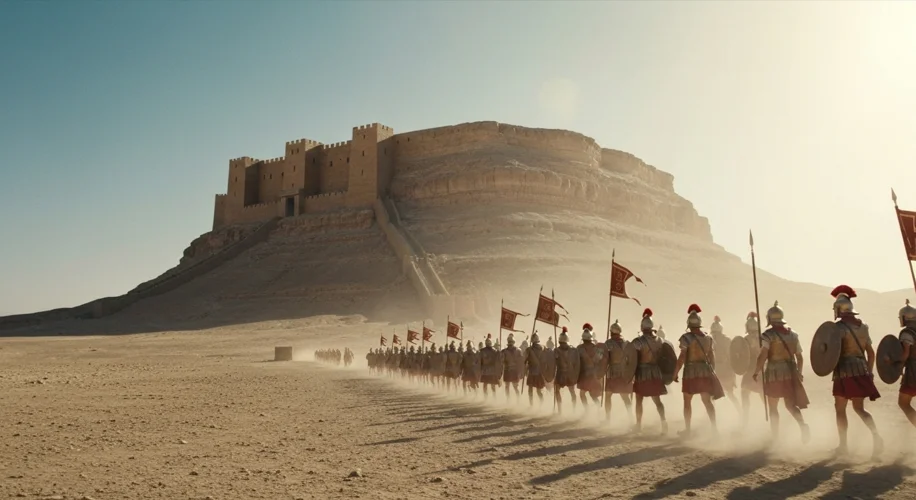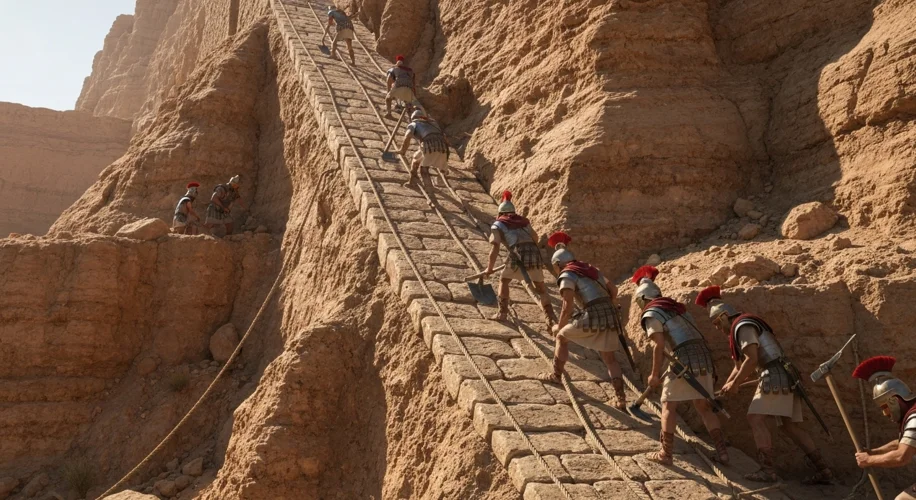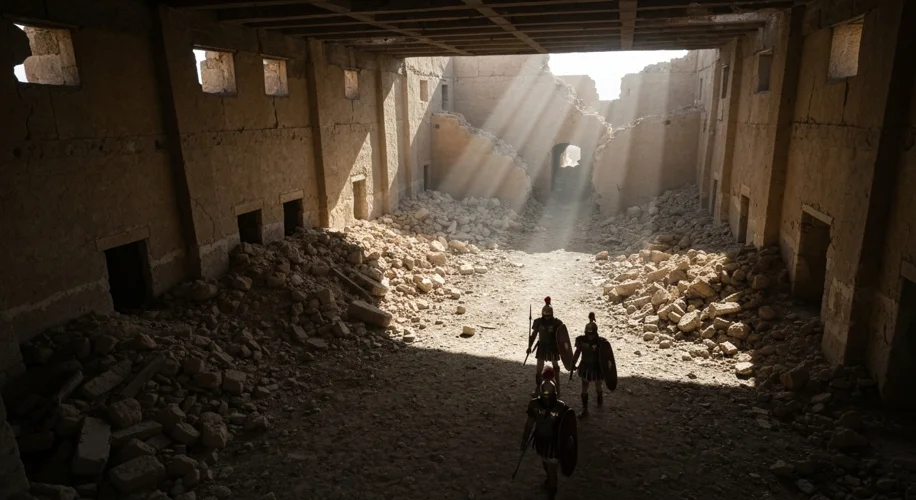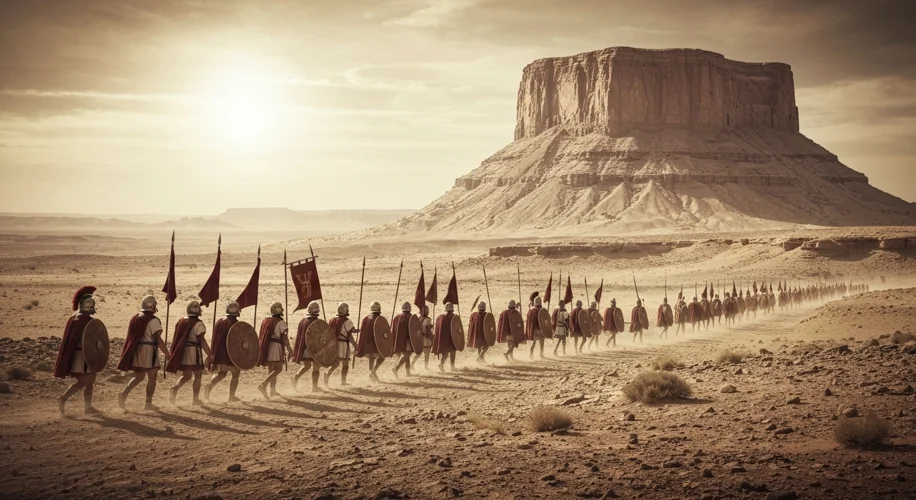Consider the following scenario: a towering, isolated mesa in the Judean Desert, its flat summit a fortress against the world. For three years, from 70 to 73 CE, this stark landscape was the stage for one of history’s most dramatic and poignant tales of defiance – the Siege of Masada. It was here that a small band of Jewish rebels, known as the Sicarii, chose a final, tragic act of resistance against the might of the Roman Empire.
To truly grasp the significance of Masada, we must delve into the tumultuous era of the First Jewish-Roman War. The Roman conquest of Judea, sparked by Jewish revolt in 66 CE, was brutal. The destruction of Jerusalem and its Second Temple in 70 CE by Titus’s legions was a catastrophic blow to Jewish identity and sovereignty. Amidst this devastation, a splinter group of Zealots, the Sicarii, seeking ultimate freedom, retreated to the seemingly impregnable fortress of Masada, a palace-fortress built by Herod the Great atop this desert plateau.

The Sicarii, led by the charismatic Eleazar ben Ya’ir, were not simply fugitives; they were ideologues. They believed that submission to Rome was an affront to God and that their fight was a holy one. Their presence at Masada was a final stand, a refusal to be subjugated. On the other side stood the formidable Roman Tenth Legion, commanded by Lucius Flavius Silva. Silva was a seasoned military man, tasked with eradicating the last vestiges of Jewish resistance. His perspective was one of restoring order and punishing rebellion. For him, Masada was an obstacle to Roman peace, and its inhabitants were criminals to be brought to heel.
The siege itself was a testament to Roman engineering and perseverance. The Sicarii, holed up in Herod’s lavish palace complex, had ample supplies, including cisterns that collected rainwater, and a commanding view of the surrounding desert. However, they were vastly outnumbered and cut off from any hope of reinforcement. Silva, recognizing the difficulty of a direct assault on the cliff face, ordered the construction of a massive siege ramp on the western side of the mesa. 
For months, the legionaries toiled, piling earth and stone, inching closer to the fortress walls. The air must have been thick with dust, the clang of hammers, and the shouts of men. The Sicarii, watching from above, understood the inevitable. As the Romans finally breached the outer defenses with a battering ram, the defenders faced a grim choice: capture and enslavement, or death on their own terms.
According to the historian Josephus, who is our primary, albeit Roman-sympathetic, source, Eleazar ben Ya’ir delivered a powerful speech to his followers, urging them to choose freedom in death over the degradation of Roman captivity. The account describes a horrific scene: the men drawing lots to kill their families, and then drawing lots again to kill one another, until only a few remained to set fire to the palace and take their own lives. In 73 CE, when the Romans finally entered the fortress, they found not a conquered enemy, but a silent testament to a desperate choice.

The consequences of Masada were profound, though perhaps not in the immediate military sense. The Roman victory, while conclusive, was achieved at a significant cost and against a small, isolated group. For the Jewish people, Masada became an enduring symbol. It represented the ultimate sacrifice for freedom and faith, a stark reminder of the cost of resistance. While the Jewish revolt was ultimately crushed, the spirit embodied at Masada was not extinguished. It would echo through centuries of diaspora and renewed struggles for independence.
Masada is more than just an archaeological site; it is a narrative woven into the fabric of Jewish identity. It speaks to the human spirit’s capacity for both incredible resilience and profound despair in the face of overwhelming oppression. The stark beauty of the Judean Desert still cradles the ruins of this ancient fortress, a silent witness to the dramatic events of 73 CE. It prompts us to reflect on the complex nature of heroism, the ethics of resistance, and the enduring power of a place to hold the memory of a people’s struggle for survival and freedom. The story of Masada continues to resonate, a powerful echo from the past that reminds us of the ultimate price of liberty.

